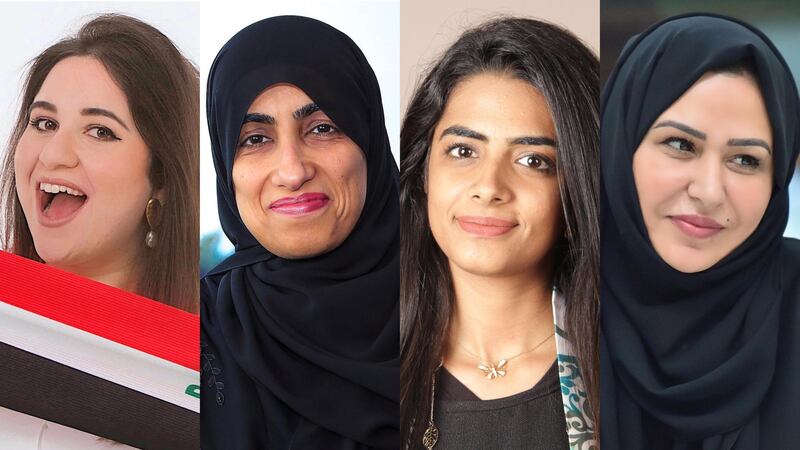More women than ever are taking to the pitch, the court or the ring in the Middle East, as sport takes great strides towards gender inclusivity. But, both on and off the field, there is still a way to go when it comes to equality. However, this is an issue that exists across the world, not just here in the UAE.
Competing alongside their male counterparts – not physically, but in terms of pay and being treated equally – is a huge obstacle to overcome for female athletes across many cultures. The same can be said for women who work in the sporting industry off the field, supporting the country’s athletes. Discrimination is a culture often ingrained across the board.
The UAE has made great efforts to reduce this imbalance, by hosting the International Conference of Sports for Women last year and introducing mandatory sport in schools. Rugby is part of the physical education curriculum – for boys and girls – as the UAE looks to develop local talent in the sport. It's especially pertinent in the aftermath of the social media uproar caused late last year when a member of the UAE's Federal National Council said girls should forgo rugby classes at school and instead learn to cook. It's even become part of a central theme of the AFC Asian Cup, with the "It's My Game" campaign dedicated to making more females aware of the opportunities available in sports in the Emirates.
So, the question must be asked: the AFC Asian Cup might be drawing publicity and excitement from afar, but where are the females? As it turns out, they’re more involved in the success of football in the region than you may think.
With the AFC Asian Cup final being played on Friday, The National spoke to inspiring women from around the region who have entrenched themselves in the footballing world for most of their lives, but who are not athletes. They opened up about gender discrimination, getting more women involved, and how the UAE is pushing boundaries.
Dr Reema Al Hosani, Emirati sports medical officer
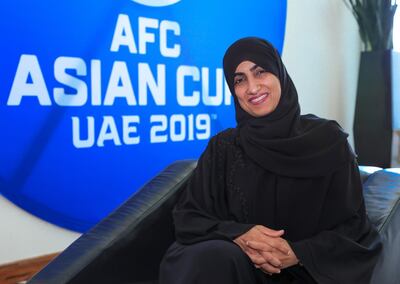
Dr Reema Al Hosani’s CV would be formidable in any country. The Emirati woman has worked as a medical officer and director for a number of sporting tournaments, including the Fifa Club World Cup 2017 in the UAE and the Women’s Under-20 World Cup 2018 in France, and she is president of the UAE’s national anti-doping committee. But she is quick to point to her humble beginnings and the family support that laid fertile the ground for her success.
"I grew up in a simple modest family with 10 siblings. My father was a sailor before he retired and he had a vision to educate all of us, despite his limited salary and inability to help us with school, because he is illiterate," she says.
"He wanted us all to be in a reputable position in the future and he always said education is a weapon that can save you all the time."
Al Hosani enrolled in medical school, safe in the knowledge that she would someday become a cardiologist; spurred on by her father, who had at that stage suffered two cardiac arrests and undergone bypass surgery. But come graduation time, she wasn’t sure what to do.
She eventually went into orthopaedics, simply because other students refused to do it. A chance encounter in Monaco at a conference on injury prevention introduced her to the head of the medical committee at AFC, and from there, Al Hosani was offered the position as their medical and doping control officer.
“There were a small number of females, and mostly from other Asian countries, but no female doctor from the Middle East or a Gulf country specifically with such a speciality, and [that’s where] my journey started,” she says.
In the years since, Al Hosani says that family support has been crucial. Her husband stepped up to take care of the family as she pursued her career, and she adds that he was “always encouraging me to go further”.
However, she’s no stranger to gender discrimination. She believes sport is a challenging environment full of “hard work, commitments, disciplines, tears, laughter, tension, stress”, compounded even more by being a physician.
“My road was not filled with roses. I stepped on many thorns. I received many comments from different individuals in my work place and from the sport community trying to stop me and convince me to give up what I am doing.
“They usually argue that I am a female, need to look after my family more, relax and not go here and there because it is difficult for a female. And some were jealous and tried to underestimate my work and put many obstacles and challenges to make it even more difficult for me.
“I called these people competitors.
“[But] we should not forget that there is a fear from community and families regarding participating in sports. We should always respect that we have values and traditions.”
Nabaa Aldabbagh, Iraqi football commentator and blogger
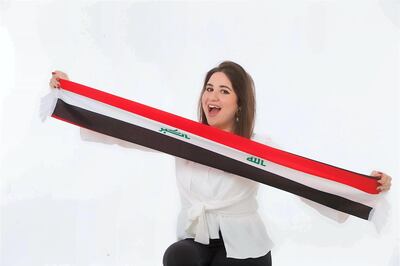
In 2007, Iraq lifted football’s Asian Cup for the first time and it was a profound moment for Nabaa Aldabbagh. “With a very bad situation in the country, they managed to make the entire nation proud, happy and hopeful. I will never forget that, ever,” she says.
Her journey began with a few tweets about football and quickly snowballed into a career blogging her commentary, with her @ispeakfootballonly Instagram page now boasting almost 40,000 followers and Facebook page 163,000 followers.
Her main aim is to educate people on how to analyse sporting matches fairly, and to think before they speak. She draws inspiration from the likes of Juventus and Portugal star Cristiano Ronaldo, who in her words “worked himself up and worked hard to get to the top”, and Chelsea coach Maurizio Sarri, who she says proves that passion and dedication are all it takes for a career in football, since his background was in accounting rather than sport.
Making a name for herself in a male-dominated world hasn’t always been easy – in the early days of her blog, Aldabbagh was advised to steer clear of sport because men “just saw me as a woman who doesn’t really fit in to ‘their’ world”.
“I had to fight back,” she says. She has now become a staunch advocate for women in sports, and believes the industry is slowly becoming more inclusive and gender-balanced.
"In the Middle East, more women need to be encouraged to be a part of football and not to feel 'ashamed' or 'less confident'. It takes a lot of courage," she says.
Mazoon Al Zadjali, Omani youth leader/motivational speaker
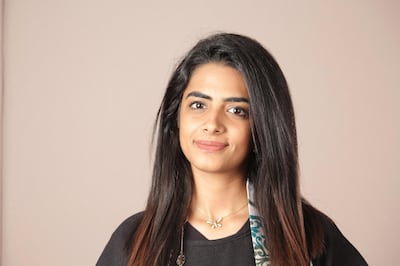
Mazoon Al Zadjali, 25, is an Omani youth leader who has, for the past decade, raised awareness on topics that are considered taboo in her culture – but she’s especially passionate about football. “I remember one day I got a call from a football coach – he congratulated me for winning a youth award from the Russian ambassador.
“I asked him ‘how will you improve girls’ football in Oman?’.
“He yelled down the phone, ‘We don’t want girls’ football. We don’t want to improve it or support it’,” she says.
She set up a football community for young girls with her sister Malak, who played football in Thailand for five years before returning home to Oman to find no support. OryxFC now has more than 100 girls on its roster.
She has been encouraged by the rate in which women are taking up the sport, but believes it still has a way to go, especially in Oman. “The mentality still needs to change; the community should accept what women as individuals are comfortable with.”
Amal Abu Shallakh, Emirati Football Association Board member
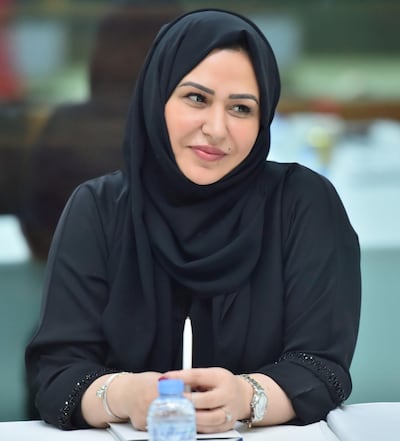
Amal Abu Shallakh is a long-standing member of the UAEFA board and the AFC committee for women’s football.
Getting more women into the game is a cause close to her heart, and she’s proud to say that the UAE currently has the first female coach of a women’s federation team in 14 years, GCC-wide. The UAE is “excelling in the Arab region”, she says, and currently there are approximately 2,500 women in the country playing football.
Despite the fact she never played the sport – being more interested in gymnastics and ballet when she was younger – her brother was a goalkeeper, and her family had always supported her career choice. But it’s the UAE government that Abu Shallakh believes has given the women of the country the biggest leg-up in terms of opportunities. The UAE has been “more open” than some of its neighbours in the GCC, which has meant support – financial, political and moral – has been easy to come by.
“In sport, politics and economics, the Emirati woman has now become present – countrywide and worldwide through the government,” she says. “Yes, there are a few issues from the side of culture and traditions, but governmental and superior support surpass these problems and we now have proper knowledge and understanding of sports.”
So what’s next for Abu Shallakh? Well, Fifa, of course.
"As an Arab Muslim woman I would like to reach Fifa and I would love to help my country in achieving this goal."
